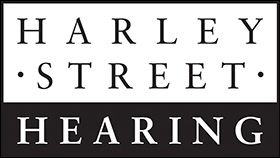Tinnitus Week 2023
Tinnitus Week
With one in seven adults now experiencing tinnitus make sure you’re following preventative measures to avoid becoming one of the seven. For Tinnitus Week the focus is on prevention. If you are already experiencing tinnitus, our hearing therapists will be pleased to see you to create your personalised tinnitus management plan. Call 020 7486 1053 or complete the form below.
Please see our tips for tinnitus prevention below:
Tinnitus Week Tips on Prevention
Tinnitus Week Video References
- Alcoholism: effects on the cochleo-vestibular apparatus – Bellé, M., do Amaral Sartori, S., & Garcia Rossi, A. (2007). Brazilian Journal of Otorhinolaryngology, 73(1), 110–116.
- Lifestyle-related risk factors for tinnitus in the general population: An overview of smoking, alcohol, body mass index and Caffeine Intake – Biswas, R., Lugo, A., Genitsaridi, E., Trpchevska, N., Akeroyd, M. A., Cederroth, C. R., Liu, X., Schlee, W., Garavello, W., Gallus, S., & Hall, D. A. (2021). Progress in Brain Research, 1–24.
- Tinnitus-related Distress: A Review of Recent Findings – Malouff, J. M., Schutte, N. S., & Zucker, L. A. (2010). Current Psychiatry Reports, 13(1), 31–36.
- Is smoking a risk factor for tinnitus? – A systematic review, meta-analysis and estimation of the population attributable risk in Germany.Veile, A., Zimmermann, H., Lorenz, E., & Becher, H. (2018). BMJ Open, 8(2).
- Noise Induced Hearing Loss and Tinnitus—New Research – Wang, T.-C., Chang, T.-Y., Tyler, R., Lin, Y.-J., Liang, W.-M., Shau, Y.-W., Lin, W.-Y., Chen, Y.-W., Lin, C.-D., & Tsai, M.-H. (2020). Noise induced hearing loss and tinnitus—new research developments and remaining gaps in disease assessment, treatment, and prevention. Brain Sciences, 10(10), 732.












